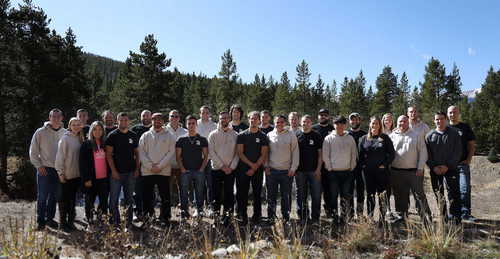As of 16:00 UTC Tuesday, community members will be able to exchange the project’s ANT tokens for newly minted Aragon Network Juror (ANJ) tokens that will be used for staking on its dispute resolution platform. The pre-activation window, open until the launch of Aragon Court on Feb. 10, will select the first class of jurors to adjudicate on cases brought before the court.
Aragon has started the process for recruiting human jurors as the governance protocol prepares to launch its decentralized court system.
Aragon provides the framework and tools needed to create decentralized autonomous organizations (DAOs) ranging from multi-faceted structures intended for thousands of users, to simple ones for just one or two people. Its court system will handle «subjective disputes that require the judgment of human jurors,» according to the official website.
Becoming a juror is open to anyone who possesses a minimum of 10,000 staked and activated ANJ tokens. Each case is assigned three jurors who are selected randomly, with the chance of selection increasing with the size of an ANJ holding. Jurors then deliberate and rule on the dispute, earning a token reward for doing so.
Jurors make their rulings independently, revealing their decision to the other jurors and those involved in the case.
A juror who votes against the other two also loses his or her staked ANJ tokens, which are then redistributed to the two winning jurors. This is aimed at ensuring jurors’ incentives are aligned with coming to the correct resolution, minimizing the chance of them being swayed to vote one way or another.
Once the Aragon Court launches on Feb. 10, there will no longer be a fixed conversion rate for ANT to ANJ. It will become a rate that will change dynamically depending on how many ANJ tokens are activated. Should the number of activated ANJ tokens fall too low, so too will the conversion rate.

The ANT price has spiked ahead of the opening of deposits later Tuesday. Tokens are currently trading at just under $0.47, according to CoinMarketCap, meaning a hopeful juror would currently need to exchange approximately $47 worth of tokens in order to be considered.
Aragon launched on ethereum in 2016. Last April, core developers submitted a proposal to begin funding a new version on the polkadot protocol. Token holders vetoed the idea concerned the move would lend support to a possible ethereum rival.
Dark Web Drug Dealer to Forfeit Millions of Dollars in Illicit Crypto Earnings
A man has been sentenced in San Diego, California, for conspiring to sell drugs over dark web markets for cryptocurrencies.
Thirty-nine-year-old Sky Justin Gornik had pleaded guilty to using a number of marketplaces such as Alpha Bay, Trade Route, Abraxas, Evolution, Outlaw Market, and Dream Market to deal in fentanyl, carfentanil, ketamine, oxycodone, amphetamine and other drugs under various pseudonyms, according to a Department of Justice announcement on Monday.
In a raid on Gornik’s home, law enforcement agents seized 1.7 grams of carfentanil and sheets of fentanyl gelatin tablets on June 7, 2017, court documents say. The amount of carfentanil – a super-potent synthetic opioid – found reportedly equated to “over 86,000 fatal dosages.”
Gornik was found to have been buying 600-1,200 fentanyl gel tablets a week over around two years from another dark web dealer, identified as Oklahoma resident Steven Wallace George. George has been prosecuted by federal authorities in his home state for manufacturing the fentanyl tablets from pure fentanyl obtained from China.
With his guilty plea, Gornik also agreed to forfeit “millions of dollars” in cryptocurrencies including bitcoins, stratis, ethereum and monero accrued as part of his drug trading. His crypto holdings were held in accounts at the U.S.-based Bittrex and Poloniex exchanges.
“Gornik admitted that these digital or crypto currency represented drug trafficking proceeds of the offense and were involved in the offense of money laundering over the Dark Web”, according to the Southern District of California Attorney’s Office.
Gornik was given a 70-month sentence for the drugs charges and for laundering drug proceeds using digital currencies.
The investigation into Gornik’s criminal activities was led by U.S. Postal Inspectors in San Diego with the assistance of special agents at Homeland Security Investigations (HSI).
Juan Munoz, acting special agent in charge of HSI in San Diego, said:
“Today’s sentencing of Gornik demonstrates the commitment of Homeland Security Investigations and our federal partners to bring these criminals to justice. HSI will continue to aggressively pursue those that continue to violate the law and jeopardize the safety of our communities by selling deadly opioids and other dangerous drugs via the Dark Web.”


